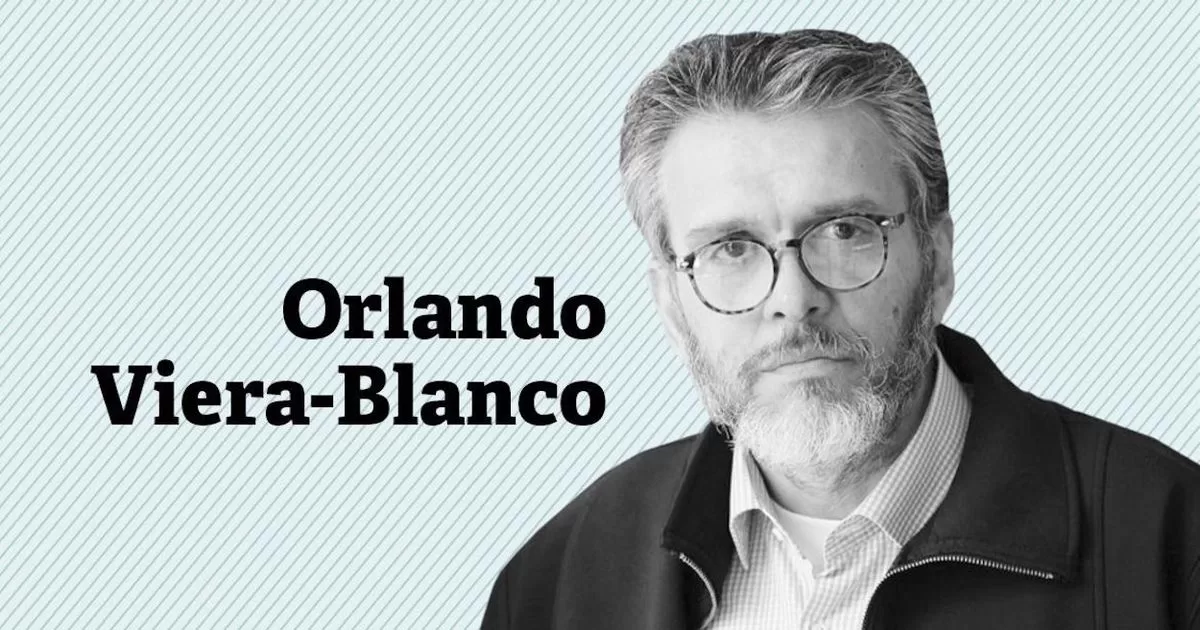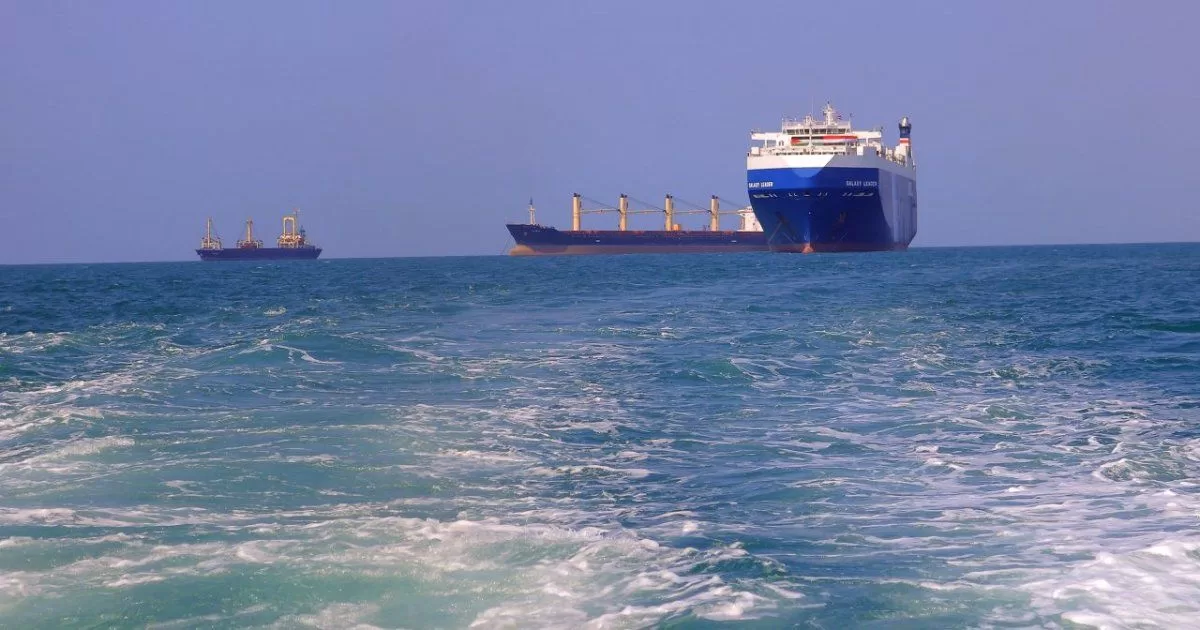Politics makes us all mature.
2023 was a transitional year. Although it meant the end of the Interim Government, it opened the way to a new agenda: 2024 presidential elections and relaunch of political-citizen unity. On this route, both parties and civil society understood that unity is also chosen by Venezuelans. This is one of the legacies of 2023. A complex selection process for a single candidate was not left in the hands of a board or a board of directors. Against all odds, we Venezuelans went out to vote, and we achieved a participation that was not only significant but also joyful, enthusiastic and disciplined.
Maria Corina Machado She is elected with a solid majority and quickly receives the support of the partisan groups and the people. María Corina has also demonstrated significant political maturity. She expanded her narrative, lowered the levels of radicalization, listened carefully and has built alliances without complexes, walking the agenda of Mexico and Barbados. With her head held high and a correct political and legal strategy, she went to the TSJ to file a complaint and seek protection. Her “disqualification” ceased to be a problem solely for the opposition, and became a turning point that the regime must resolve, lest it lose the privileges it had achieved.
We Venezuelans have learned that a negotiation with an authoritarian coalition is not a constitutional matter. It is a possibilist, political, transitional, aspirational matter, where concessions are made outside of a legal or conventional order. And that concession is to rekindle our will. The freedom of political prisoners, which is an inalienable right, indecently but pragmatically part of the round table has been incorporated into the transitional agenda towards democracy. A notorious fact that had been left behind, if not excluded, in the Mexico agreement.
We Venezuelans have also understood that power is not a value reserved for political leadership. When the commitment is to recover our human, civil and political rights, to reestablish our citizen identity, our culture, the challenge is fundamentally group-based. In this difficult process of returning home, living in peace and normality, we all go with our hands raised and standing. The times are not what we want, so the way to skip violence and confrontation is rationality and organization. The highest value of the call is humility, which is inclusion. And the first one who must set the example of openness and reconciliation is the leader.
The reconciliation
If María Corina makes Nicolás Maduro feel that his objective is not him or his environment but the reconciliation of a country as a sine qua non condition to be happy and prosperous, the paths are fertile. If María Corina steps forward and calls for unity without rancor and without misgivings (which she does), every Venezuelan of any color, social class or party will respond. If María Corina addresses the Chavista-Madurista people as what she is, more as a mother, citizen and woman than as a politician or aspirant, the humble, needy and disillusioned people will also recognize her.
Reconciliation includes everyone. One of the important facts of 2023 is that Venezuela, unlike other oppressed societies, demonstrated that in the midst of its fatigue and abandonment, it is capable of overcoming hatred and differences. Needs surpass intemperance. The will to stand up overcomes submission. Without a doubt, the tension and persecution continue, but both the opposition and the regime understand that, if we do not reach a historic social truce, no one wins or guarantees anything. And that truce is not only political change, but tolerance as a real factor of reunion. Justice has and will have a fundamental value for peace and transitional governance. But there is a fine line between irredeemable justice and inevitable amnesty.
The price we have to pay for our freedom and cultural reconstruction is to understand that fears and threats are not monopolized by the oppressor. He also fears. So one of the great challenges of 2024 will be to alleviate the burden of fears and threats. Political persecution must stop and political prisoners must be released. But the narrative of revenge and retaliation—which is remote, polarized, and unhelpful radicalization—must be put aside.
A large majority of Venezuelans have learned to read offense less and value works more than words. Those with inflammatory and emboldened verbs, on both sides, have been left behind from all sympathy. The people, the displaced, the immigrant appeal to the wisdom of the rational and good being, the submissive, exhibits character because he thinks with his head and not with his stomach. Then the exchange, María Corina’s appeal to the TSJ or the referendum on the Essequibo, became the middle of our discussions and discomforts in events that appeared adverse, but had a thrilling reality: None of the parties has the upper hand and the electoral route is more alive than ever. That is the great challenge of 2024
It is not the end Churchill predicted. It is not the beginning of the end either. But if the end of the beginning…
The crisis that does not subside. Not accepting submission…
Gramsci’s epigraph verbalizes the intuition of crisis: “somehow the current situation is unsustainable and some threat to democracy has already materialized, although the institutions of the status quo remain in place.” Although Marx (1859: 43-44) already thought “that new and superior relations of production never take the place of a social formation before the material conditions of their existence have been incubated within the old society itself,” There is no guarantee that when the institutions of the status quo cease to function properly, some other institution will descend upon the earth as a deus ex machina. It will depend on the actions of the relevant political and collective forces to make something work better.
Here we come to the state of the matter in the balance and perspectives 2024. Institutional alternatives to replace the status quo exist. They are planted in society. What’s more, they have not ceased to exist. Do not confuse nonexistence with ineffectiveness. We have experienced a process of democratic dematerialization and deinstitutionalization whose crisis does not subside due to the difficulties of the alternatives of reactivating and organizing its own forces. But underlying Venezuelan society is a democratic ideal of peace and justice. They continue to exist more adequately than we are capable of accepting it, a will to progress and development, ready to fight. But we cannot wait for a God to come down to earth and supplant the old, worn-out status quo.
Frédéric Worms in his book “The chronic diseases of democracy” (Les maladies chroniques de la démocratie) warns us how totalitarian regimes absolutely kidnap our feelings. “Totalitarianism as a doctrine that replaces and justifies everything, or nihilism, which is the complete absence of feelings. They are the extremes of danger and cynicism. Danger is the perception of inability to get out of the crisis. The patient dies because he dies. There is no way to save it. Cynicism, which is the cancellation of all aspiration, is the relativization of all alternatives, through the trivialization of suffering. We can suffer among ourselves whether we do good or do evil, but whatever we do, whether it is all or nothing, everything will remain the same. There’s no point in trying. That is the danger and cynicism of totalitarianism that leads to nihilism.
Despite being planted in our deepest roots, good over evil, peace vs. violence, progress vs. misery, the republic vs. anarchy and justice vs. dispossession and authoritarianism, the good alternative, paraphrasing Andrés Eloy, dies outside and the bad alternative eternalizes inside, waiting for God to come down and resolve us. It is nihilism in full action. The cynical action that prevents us from aspiring and seeing the alternative to work for it. Cynicism that questions us as a society, that divides us, disqualifies us and makes us seem non-existent. The danger of this attitude is that we cannot use our strength and organize to ensure that the institutions incubated within our society flourish. And in the words of Gramsci and Marx, what remains is a constant threat, which is not precisely what instils the status quo, but rather the oppressed society itself, which does not feel capable of reconstructing and restoring its social formation. Thus he loses hope.
The danger, according to Worms, is the relativism of the crisis. We learn to live in crisis. It doesn’t matter what we do, because nothing will emerge or remain on earth but the crisis. Democratic, social or moral aspirations are condemned to an irreducible crisis. And “the good boy” dies in our womb because cynicism prevails over noble feelings. In 2023, good Venezuela woke up. The one that refuses to let the bad status quo continue. The one that refuses to accept living in suffering as if it were a normal condition, or worse, with no alternative. 2024 can become the year to overcome permanent obstacles, recurring errors, the perverse assimilation of scandals, anomie and pain, to transform cynicism into life, freedom and a democratic alternative.
In the Discours de la servitude volontaire (The Discourse of Voluntary Servitude) by Étienne de La Boétie is a true denunciation against absolutism, questioning the relations of domination, the legitimacy of authority over the population and the acceptance of this submission. And Boétie tells us: “Certainly doctors advise not to touch incurable sores. I have no reason to want to preach this to people, who have long since lost all knowledge, and since they no longer feel their illness, this clearly demonstrates that their illness is fatal.”
Let’s not make illness a mortal acceptance. The sore is curable. Our (mortal) disease is acting under voluntary servitude…The alternative exists, it is alive. Let’s make it bloom. It doesn’t have a name, it’s not just María Corina. It’s you…it’s all of us. Happy new year 2024. A new era, a new life, without dangers, without cynicism, without acceptance of the crisis, without submission.
Paraphrasing Churchill and La Boétie: It is not the beginning of the end, it is not the end of the beginning, but it is the end of voluntary servitude.
@ovierablanco


